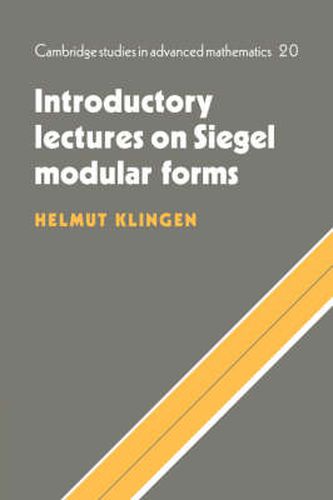Readings Newsletter
Become a Readings Member to make your shopping experience even easier.
Sign in or sign up for free!
You’re not far away from qualifying for FREE standard shipping within Australia
You’ve qualified for FREE standard shipping within Australia
The cart is loading…






About half a century ago C. L. Siegel discovered a new type of automorphic forms in several variables in connection with his famous work on the analytic theory of quadratic forms. Since then Siegel modular forms have been studied extensively because of their significance in both automorphic functions in several complex variables and number theory. The comprehensive theory of automorphic forms to subgroups of algebraic groups and the recent arithmetical theory of modular forms illustrate these two aspects in an illuminating manner. The author’s aim is to present a straightforward and easily-accessible survey of the main ideas of the theory at an elementary level, providing a sound basis from which the reader can study advanced works and undertake original research. This book is based on lectures given by the author for a number of years and is intended for a one-semester graduate course, though it can also be used profitably for self-study. The only prerequisites are a basic knowledge of algebra, number theory and complex analysis.
$9.00 standard shipping within Australia
FREE standard shipping within Australia for orders over $100.00
Express & International shipping calculated at checkout
About half a century ago C. L. Siegel discovered a new type of automorphic forms in several variables in connection with his famous work on the analytic theory of quadratic forms. Since then Siegel modular forms have been studied extensively because of their significance in both automorphic functions in several complex variables and number theory. The comprehensive theory of automorphic forms to subgroups of algebraic groups and the recent arithmetical theory of modular forms illustrate these two aspects in an illuminating manner. The author’s aim is to present a straightforward and easily-accessible survey of the main ideas of the theory at an elementary level, providing a sound basis from which the reader can study advanced works and undertake original research. This book is based on lectures given by the author for a number of years and is intended for a one-semester graduate course, though it can also be used profitably for self-study. The only prerequisites are a basic knowledge of algebra, number theory and complex analysis.